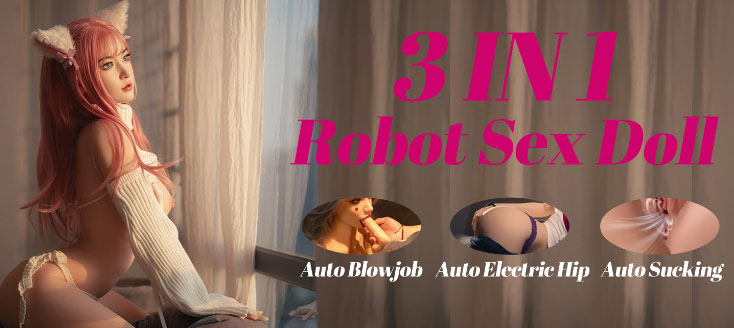What are the most common legal concerns users have about owning hyper-realistic sex dolls?
The growing popularity of hyper-realistic sex dolls has sparked various legal concerns among users. These concerns range from issues of morality and legality to privacy and safety. Here’s a detailed exploration of the most common legal concerns users express about owning hyper-realistic sex dolls:
1. Legality of Ownership
- Child-Like Dolls: One of the most significant concerns revolves around the legality of owning hyper-realistic dolls designed to resemble children or minors. In many jurisdictions, the possession of child-like sex dolls is a legal gray area or outright illegal, as they can be seen as promoting pedophilia or child exploitation. Users often worry about the potential legal ramifications of owning such dolls, fearing criminal charges or social ostracism.
- Local Regulations: Laws regarding sex dolls can vary significantly from one region to another. Users often express concern about the ambiguity of local laws. They might be uncertain whether their doll falls within legal parameters, leading to anxiety about potential legal repercussions.
2. Importation Laws
- Shipping and Customs Issues: Users frequently cite concerns about the legality of importing hyper-realistic sex dolls. Customs regulations can be complex, and users may fear having their dolls seized by authorities upon import. This concern is exacerbated in countries with strict import laws regarding sexually explicit items.
- Potential Fines or Penalties: The possibility of fines, penalties, or legal action for importing prohibited items also weighs heavily on users’ minds. They often seek clarity on what can be legally imported and what might attract legal consequences.
3. Privacy and Surveillance Concerns
- Data Collection and Surveillance: As many hyper-realistic sex dolls incorporate AI and are internet-connected, users are concerned about the data these dolls collect. They worry about potential surveillance, data privacy breaches, or misuse of their personal information. Users often feel uncomfortable with the idea that their interactions with a doll could be monitored or recorded.
- Legal Consequences of Data Misuse: Users are also anxious about the legal implications of data collection. They may be concerned about how data could be used against them in a legal context, especially if their usage of the doll is ever questioned.
4. Public Perception and Stigma
- Social Stigma: There is a pervasive stigma attached to the ownership of hyper-realistic sex dolls. Users fear that public knowledge of their ownership might lead to social ostracism, discrimination, or negative judgments from friends, family, or the broader community. This concern can discourage individuals from discussing or even admitting to their ownership of such dolls.
- Legal Defense Against Discrimination: Some users express concern about potential discrimination based on their ownership of hyper-realistic dolls, leading them to question whether legal protections exist for those who own or use sex dolls in privacy.
5. Liability and Insurance Issues
- Liability Concerns: Users sometimes worry about potential liability issues arising from owning hyper-realistic sex dolls, especially if an incident occurs involving the doll that leads to injury or damage. Users may question whether they could be held legally responsible if someone were harmed while interacting with or using the doll.
- Insurance Coverage: Users often seek clarification on whether insurance policies cover hyper-realistic sex dolls. They may be concerned about whether damages, theft, or liability related to the dolls would be covered under their homeowner’s or renter’s insurance policies.
6. Regulatory Compliance and Safety Standards
- Quality and Safety Regulations: Users are increasingly aware of the potential safety hazards associated with poorly manufactured hyper-realistic sex dolls. Concerns about the materials used, such as harmful chemicals or allergens, lead users to advocate for stricter regulations and safety standards in the manufacturing process.
- Regulatory Oversight: Users often express a desire for government oversight in the sex doll industry to ensure that products meet established safety and quality standards. This concern is particularly pronounced among those who want to ensure that the dolls they own are safe for use.
7. Ownership Rights and Resale Issues
- Resale Restrictions: Some users worry about the legality of reselling hyper-realistic sex dolls. Concerns include whether they can sell their dolls without facing legal repercussions and whether specific regulations govern the resale of such items. The potential for being classified as a seller of adult products raises fears of legal complications.
- Intellectual Property Issues: Users may express concerns about owning dolls that resemble specific individuals or celebrities, leading to questions about copyright and intellectual property laws. They worry that ownership could infringe on rights held by the likenesses of those individuals, leading to legal challenges.
8. Ethical and Moral Concerns
- Ethical Considerations: Beyond legal implications, users often contemplate the ethical ramifications of owning hyper-realistic sex dolls. They may grapple with questions about the impact of such dolls on societal attitudes towards relationships, intimacy, and consent.
- Moral Legalities: The perception that owning hyper-realistic dolls is morally questionable can lead to concerns about potential legal restrictions based on moral grounds. Users may feel that laws could evolve to reflect changing societal values surrounding sexual expression and intimacy.
Conclusion
The legal concerns surrounding the ownership of hyper-realistic sex dolls encompass a range of issues, including legality, importation, privacy, public perception, liability, and ethical considerations. As the market for these dolls expands and societal attitudes evolve, users are increasingly vocal about their desire for clearer regulations and protections that address their concerns while respecting personal freedoms and autonomy. Understanding these legal dimensions is crucial for potential owners and the industry as a whole, as it can inform discussions about the future of hyper-realistic sex dolls and their place in society.

